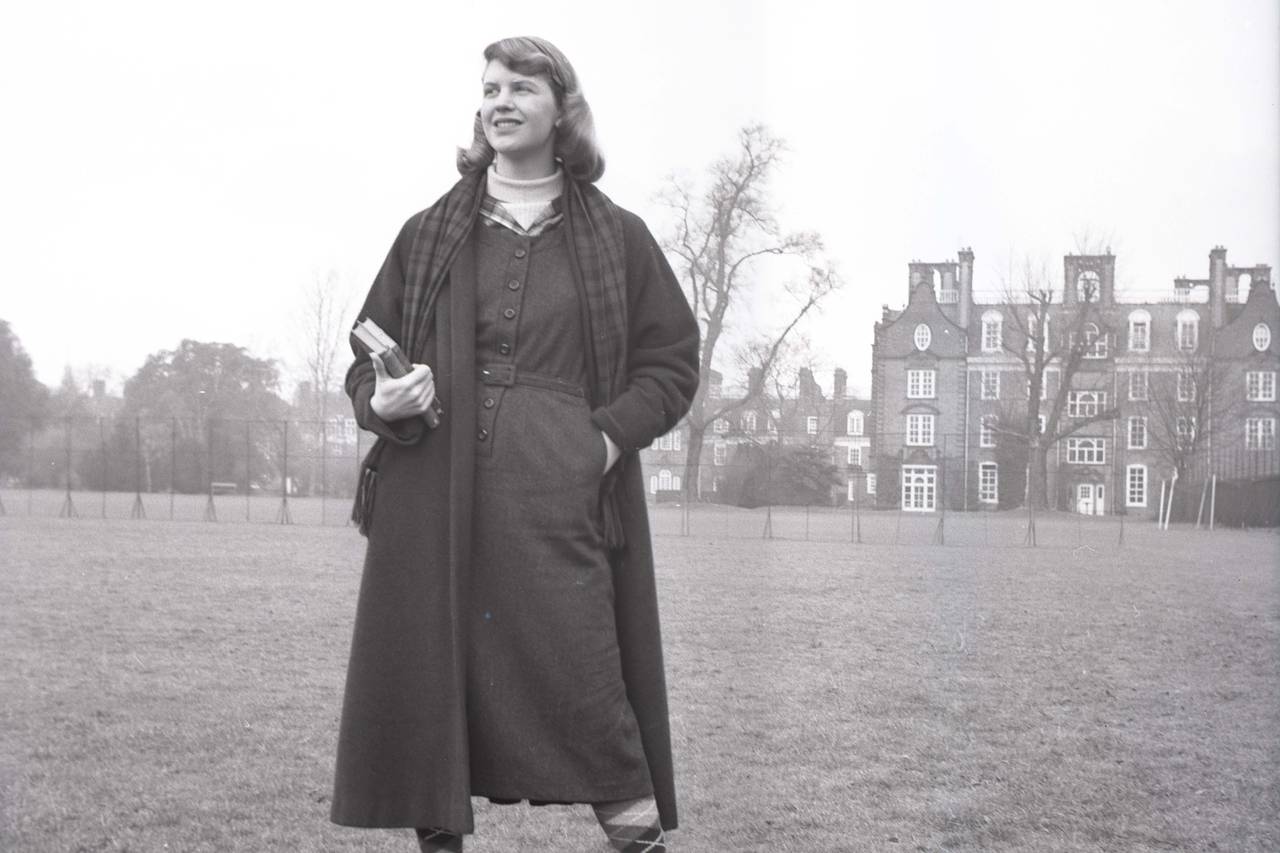Boston-born twentieth-century poet Sylvia Plath took her life at the early age of 30, but her work left more than a mark on both poetry and feminism. Her poetry rejects the conventions of meter and rhyme, as well as those of docility and femininity. The posthumously published Ariel launched Plath into the limelight and landed her in the literary canon. In a New York Times Book Review, Joyce Carol Oates described Plath as “one of the most celebrated and controversial post-war poets writing in English.”
Ariel wields words with both sharp precision and blunt force. Set against the backdrop of the highly commercialized and domesticized post-war America, Ariel reveals cracks beneath the surface of American life. The intensely autobiographical collection explores her mental anguish, unresolved conflicts, troubled marriage, struggles of motherhood, and much more; Plath ultimately set the stage (along with poets Robert Lowell and Anne Sexton) for “confessional” style poetry, which has remained popular until today.
Perhaps her most famous line comes from “Lady Lazarus,” in which Plath plays out her death as a theatrical event, but then she is reborn from her ashes. She writes, “Out of the ash / I rise with my red hair / And I eat men like air.” Cryptic, terrifying, and powerful, “Lady Lazarus” leaves readers stunned.
Plath’s raw, frank, and visceral use of free verse also give her poems a depth of feeling matched by few others. Undiluted, unforgiving, and unapologetic, her words have even be categorized as distinctly un-feminine—for her time. In a foreword for Ariel, Lowell admires Plath’s ability to turn what was customarily thought of as feminine “on its head.” Writer Honor Moore describes Ariel as the beginning of a movement:
“When Sylvia Plath’s Ariel was published in the United States in 1966, American women noticed. Not only women who ordinarily read poems, but housewives and mothers whose ambitions had awakened […] Here was a woman, superbly trained in her craft, whose final poems uncompromisingly charted female rage, ambivalence, and grief, in a voice with which many women identified.”
Plath’s frank and clear writing makes itself known in the first poem of Ariel. “Morning Song,” describes the breath of a newborn baby. Path writes, “All night your moth-breath / Flickers among the flat pink roses. I wake to listen: / A far sea moves in my ear.” By Plath’s careful balance of short, harsh words (moth-breath, flat, and pink) with light and airy ones (flickers, roses, sea), readers get a sense dissonance; Plath may be a doting and loving new mother, but she also feels unfamiliar with—and even distant from the child.
Robert Penn Warren calls Ariel a “keen, cold gust of reality,” as Plath illustrates everyday incidents as her own horrifying psychological experiences. In “Cut,” she turns a cut on her thumb into an extended metaphor. She writes, “What a thrill—My thumb instead of an onion.” Then goes on to compare her thumb to soldiers committing major acts of violence: “Little pilgrim, / The Indian’s axed your scalp.” Using obvious, direct, and even plain speech, her words feel finite, inevitable, and in some ways, even logical. Yet, Plath maintains an air of tenderness throughout the collection. Poet Ted Hughes, though highly criticized for his rumored ill-treatment of her during his marriage to Plath, amicably describes her language and demeanor:
“She saw her world in the flame of the ultimate substance and the ultimate depth. And this is the distinction of her language, that every word is Baraka: the flame and the rose folded together. Poets have often spoken about this ideal possibility but where else, outside these poems, has it actually occurred? If we have the discrimination to answer this question, we can set her in her rightful company.”
Highly admired, Plath’s life borders on romanticized. This is largely due to the speculative nature surrounding her marriage, death, and posthumously published diary entries, letters, and career-launching poetry collection Ariel. While some may paint Plath as a woman driven to madness by her domineering father, an unfaithful husband, and the demands of motherhood; others may see her as a genius robbed of a full life by severe mental illness. Regardless of the narrative we may apply to her life, Plath’s writing opened new avenues for complex, certain, and even nasty women to come after.



